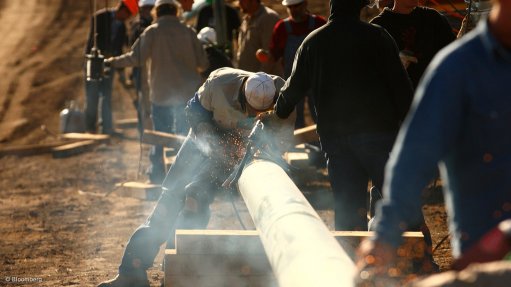
Bill C-69 – the legislation the Canadian government introduced last year to overhaul federal environmental assessments for major projects – threatens to further depress investment in the “already depressed” natural resources sector, research institute CD Howe has warned.
In a new report, ‘A crisis of our own making: Prospects for major natural projects in Canada’ authored by Grant Bishop and Grant Sprague, CD Howe warns that projects will be “unnecessary exposed” to political risk.
Bill C-69 proposes to replace the Canadian Environmental Assessment Act 2012 with an Impact Assessment Act (IAA). It will also reconstitute the National Energy Board (NEB) as the Canadian Regulator and eliminate its role in leading environmental assessments of pipeline projects.
Under the proposed IAA framework, assessments will concern a wider set of potential affects and any adverse effects will require the Minister of Environment and Climate Change or Cabinet to determine whether a project is in the “public interest”.
This, CD Howe argues, risks increasing subjectivity and politicization in project approvals.
“The crowding of policy debates – for example, over Canadian policy for reducing greenhouse gas emissions – into project-specific determinations risks significantly prolonging the assessment process and exacerbating uncertainty for project proponents,” say Bishop and Sprague.
Already, mining projects in Canada are facing environmental assessments that take longer than in Australia, for instance, while pipeline approvals are protracted relative to those in the US.
CD Howe says announcements of new energy and mining projects have slowed after 2015 and, between 2017 and 2018, the planned investment value of major resource sector projects has plunged by C$100-billion – an amount equal to 4.5% of the country’s gross domestic product.
The research organisation argues that Bill C-69 is “flawed” and says that the legislation for impact assessments has to specify considerations for assessing projects that can be scoped and applied with reasonable consistency and predictability. It also says the legislation has to preserve the role of independent and expert lifecycle regulators, specifically, the NEB, the Canadian Energy Regulator and Canadian Nuclear Safety Commission, in leading assessments.
Further, it calls for a requirement of a “significant” standard for a project’s effects before involving political decision-makers in approving the project and to specify a standard for “standing” that ensures review panels can focus proceedings on relevant submissions.
The Fraser Institute has also said that scrapping the “standing” test for public participation will throw the door open for interventions from groups far from any proposed project, potentially adding a vast amount of time for taking testimony on a proposed project.
The Fraser Institute’s resident scholar Kenneth Green last year warned that the Bill would mean environmental assessments would take longer and be more subjective.